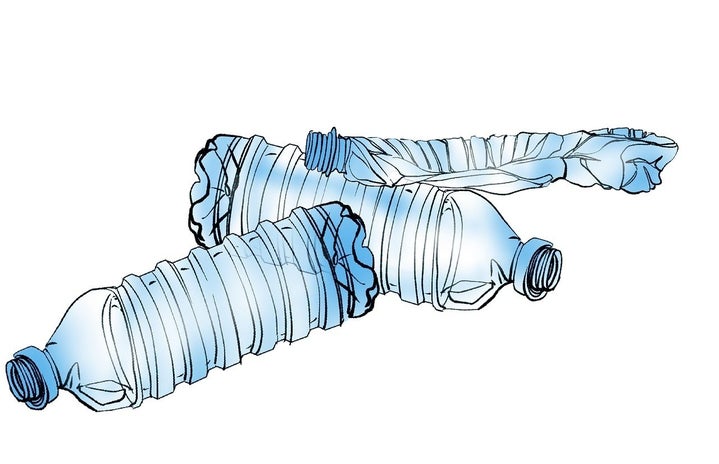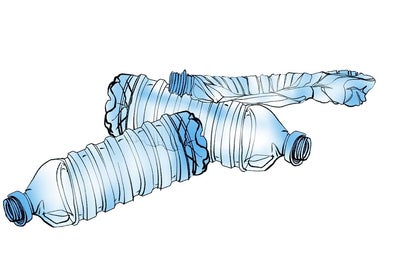In 2010, the United Nations General Assembly voted to recognize the “right to safe and clean drinking water as a human right.” However, the United States, along with 40 other countries, abstained from this vote, meaning that we currently do not recognize it as a human right.
As soon as you delve a little deeper into water access and policy in the United States, it becomes embarrassingly clear that our government has taken the “water isn’t a human right” part of their abstaining to heart. Flint, Michigan is the most infamous case of toxic water in the United States, but places like Pittsburgh, Pennsylvania; East Chicago, Indiana; Airway Heights, Washington; Brady, Texas, and my hometown of Milwaukee, Wisconsin have significant water sanitation issues as well.
This is a troubling amount of communities without secure and constant access to clean water for a developed country, and that’s not even considering the water crisis that Indigenous Americans have been suffering from for decades. According to a 2021 study, an estimated one in 10 Indigenous Americans lack access to safe tap water. Many of these tribes are located within the Colorado River Basin across California, Nevada, Arizona, New Mexico, Utah, and Colorado, which should be heartbreaking for my fellow Boulder students especially.
California is the first (and currently only, although Virginia is quickly following) state to recognize the human right to water. However, I looked into the actual legislation that did so, and it turns out that they wrote a loophole into the recognition itself:
“This section does not expand any obligation of the state to provide water or to require the expenditure of additional resources to develop water infrastructure.”
So…yeah. California might not be the best example for water rights, seeing as they pushed the responsibility of clean water access away from them in the legislation that was supposed to be pushing it towards them.
Is there a reason the United States can’t make water a human right? Is it impossible? Will our Constitution even allow it? I’m here to tell you that yes, it is entirely possible, it could be entirely plausible, and it is entirely necessary.
I’m not an environmental or legal scholar, but I know enough about constitutional law to make an argument that water is an inalienable right whether the United States wants to recognize it or not. The three pillars of my argument are bolded in dark blue for clarity purposes.
The first thing you need to know about my argument is that the United States Constitution is a lot more flexible than people want you to think. First of all, our Constitution is a living document (albeit slowly aging), meaning that it can be changed through our amendment process seen in Article Five.
The Ninth Amendment also explicitly acknowledges that rights that were not mentioned in the Bill of Rights (the first 10 amendments of the constitution) can still exist. The founding fathers made a lot of questionable decisions with our government, but they were smart enough to understand that new rights that they couldn’t imagine in the late 18th century may appear with changing technology, territory, and societies. We can see that our Constitution has allowed such extreme additions of rights since—an example being FDR’s New Deal, where he guaranteed rights not enumerated in the Constitution at all—income at an old age and a standard of living is now a quasi-constitutional right. So why can’t water be?
It can. The lack of water rights currently in constitutional law doesn’t mean it will always have to stay that way. Thankfully. The founding fathers mostly drank alcohol anyways because water was less sanitary back then, so I personally am glad we are allowed as a nation to alter their original ideas.
The second pillar to my argument has to do with a marvelous caveat in our polity known as “the Fourteenth Amendment” and the idea of substantive due process. The Fourteenth Amendment has a “due process clause” initially intended to extend the Fifth Amendment right to due process to newly emancipated, previously enslaved black men. Since then, however, its effects have been so far-reaching that it’s most definitely affected your life without your knowledge.
First of all, a refresher on your high school civics class: there are two types of due process. You most likely know about procedural due process already, which protects individuals from unreasonable treatment in legal proceedings (think about the right to remain silent, the right to a fair trial, and the right to an attorney). Substantive due process is much more far-reaching and is a much newer idea in the courtrooms, but it’s the kind that we’ll be focusing on in this argument. Substantive due process is more subjective than procedural and is based on the idea that some rights are so fundamental, the government must have a compelling reason in order to infringe on them. Thus, while procedural due process is restricted to courtroom rights, substantive can apply to many rights based on what you consider “fundamental.” Because of substantive due process, we have so many more rights granted to us by the Supreme Court today than the founding fathers would have even imagined, including both interracial and LGBTQ+ marriage rights.
What does this have to do with the right to clean water? Again, it has to do with what you define as a “fundamental right.” If hypothetically, it is decided that the right to clean water is fundamental to all United States citizens, future case law could decide, with the use of the Fourteenth Amendment and substantive due process, that the government is obligated to recognize clean water as a right.
If you’re having trouble deciding whether water is an inalienable right, here’s where my reasoning comes from (although you’re entitled to your own opinion): Thomas Jefferson himself* claimed in the Declaration of Independence that “all men are created equal…and are endowed with certain unalienable rights, that among these are Life, Liberty and the pursuit of Happiness.”
You can’t get much closer to the right to live than the right to water. Water is an essential building block to human life, and clean water at that. Three to four million people die every year of water-related diseases, and that includes the United States. There’s been multiple deaths from the lead-contaminated water crisis in Flint, Michigan, and many more illnesses and health conditions have formed from this unsafe water as well. Death from water contamination in a country that built itself upon the notion of the right to live is enough for me to connect the dots between substantive due process and water rights.
My third pillar to construct my argument is a moral one. How can the United States, a country built on land that was already occupied, deny its citizens the right to water that they themselves have contaminated? Honestly, it’s embarrassing to me that we chose to abstain from the UN’s recognition of water and sanitation as a human right, especially when we have such feasible means to recognize it as a right as well.
So, you now know three arguments as to how/why access to clean drinking water should be recognized as an inalienable right in the United States: it’s morally necessary, it falls under the “life, liberty, and pursuit of happiness” statute guaranteed to those in the United States, and it’s accessible and available to do with the Fourteenth Amendment through case law, as well as through our amendment process (although this is unlikely, seeing as our amendment process is pretty arduous).
When clean water is treated as a privilege, not guaranteed by our government, we should know how much farther we have to go before achieving environmental justice. This Earth Day, be aware of your water consumption, and check out some of these initiatives:
Safe Water For First Nations (Not US based, but neither is the international human right to clean water)
*Please note that despite my mentioning of Thomas Jefferson, he should not be used as a hero or role model, and he himself was incredibly contradictory to the sentiments in his writings. However, he is used in this argument because his Constitutional inputs do provide the groundwork for the right to clean water and they should be acknowledged.


